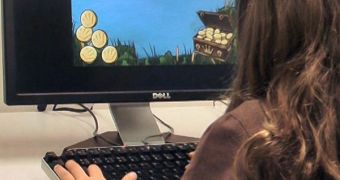Researchers at the University of Michigan have demonstrated in a new study that kids who take active steps towards training their brains to increase memory capacity are also more likely than their peers to solve problems more efficiently, and also to display improved reasoning abilities.
Together, these abilities are called fluid intelligence, and researchers have been wondering for many years as to whether constant practice can help improve this capability, or if there are innate limitations to its capacity.
Experts say that fluid intelligence can be associated successfully with educational success. A child who display higher degrees of this form of intelligence is more likely to fare better in school than peers.
In the new experiments, the U-M team wanted to see whether tasks aimed at boosting short-term memory could also improve fluid intelligence. The work was carried out on 62 children, all of which were of elementary or middle-school age.
The kids, all of whom were from southeast Michigan, were asked to participate in a task that was aimed at boosting their working memory – the ability to remember short bits of information over short time frames. This skill is tremendously useful for our daily lives.
“Individual differences in training influenced the children's performance on the intelligence tests,” says study leader Susanne Jaeggi, who is a researcher in the U-M Department of Psychology. Colleagues Martin Buschkuehl, John Jonides and Priti Shah also led the work.
“Our current finding makes sense when you think of physical training. If you don't try and really go running instead of just walking, you won't improve your cardiovascular fitness,” Jaeggi adds.
In the experiments accompanying the research, half of the children were put through intensive working memory training. They participated in 15-minute long sessions five times per week, for a total of 20 sessions over a month.
In the mean time, kids in the control group studied general knowledge and vocabulary skills. Three months after this stage of the study concluded, the two groups were compared. Experts found out that kids in the test group fared a lot better than those in the control group.
Details of the new work were published in the latest issue of the esteemed journal Proceedings of the National Academy of Sciences (PNAS). The study was funded by grants secured from the Department of Education's Institute for Educational Sciences.

 14 DAY TRIAL //
14 DAY TRIAL //